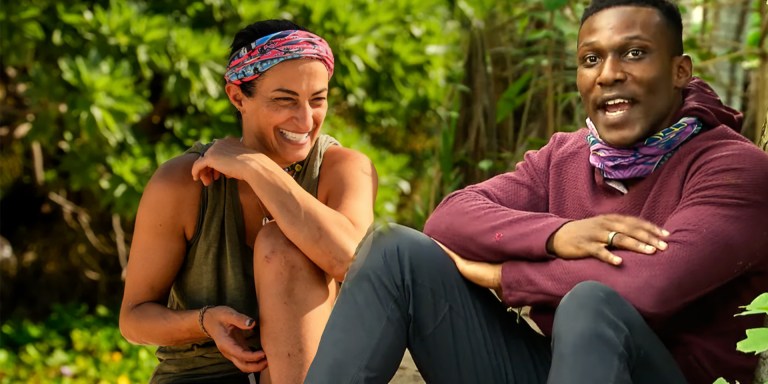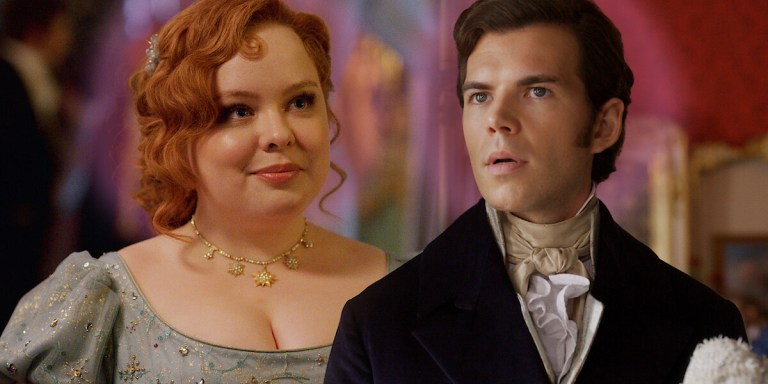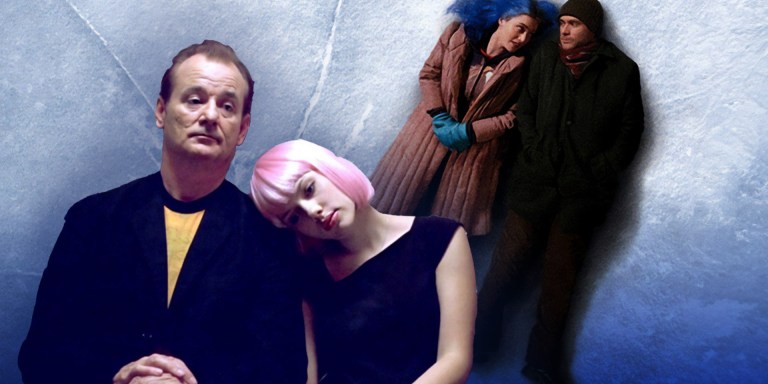INTJs are known as the masterminds of the Myers-Briggs world. These introverted, intuitive, thinking, judgers are among the most focused and analytical of all personality types.
In a new series that focuses on clarifying the questions we all have for various personality types, I sat down with an INTJ and asked them the personal questions that readers wanted answers for. Here’s the INTJ perspective on life, romance and everything in between.

ENFP: So before we get into the juicy questions, there are a few linguistic nuances that readers wanted clarified. The first one relates to success – as an INTJ, what is your definition of success?
INTJ: My definition of success correlates with my vision of long-term projects. Success is being able to have made some kind of impact or influence on the world that is in line with my personal morals. INTJs like long term projects and success is viewed in that way too – it’s kind of a long term project of trying to make an impact in away that fits with our vision of the world and our ideals.
ENFP: What are INTJ ideals like?
INTJ: We’ll get to that later – it ties into our expression of introverted feeling.
ENFP: Fair enough. Next clarification – what is your definition of failure?
INTJ: To me, failure is any situation in which I feel useless.
If something goes wrong and [the INTJ] can reason why it happened, that’s fine – we can look at it and theorize that we could have done X, Y or Z to prevent the situation. The problem was the plan. But if something goes wrong for no reason that is apparent to us, it’s easy to internalize that and assume that we ourselves were the problem. This is especially prevalent in the social sphere. For example, if I reach out to a friend multiple times and they don’t get back to me, I’ll fail to see a flaw in my plan and then have to ask myself if the problem is me.
To give another example – this time from the academic sphere – INTJs tend to set very high ideals for themselves academically. If we feel like we’re making progress on those ideals that’s great but if we’ve given it our all and still can’t seem to make our ideals, that’s when we have to put ourselves into question. That’s when we’re forced to ask ourselves if we’ve failed.
ENFP: Interesting. Last definition question – how do you define the experience of love?
INTJ: This is a really tough one.
My definition of love involves a deep connection and a sense of unity. It should involve the qualities of openness, honesty and safety – safety both in the sense of security and also in the sense of feeling free to open up and come out of my shell with whomever I’m with. I want to be able to enjoy the presence of the other person both in conversation and in silence – to be able to bask in their presence.
It’s important to INTJs that the other person has an understanding of us and how we operate. But we also want the relationship to improve us and help us learn more about both ourselves and about the other person’s world. Relationships are somewhat of a puzzle to us, but one that we enjoy discovering.
ENFP: In terms of choosing a partner, are there any particular types you usually find yourself drawn to?
INTJ: I think INTJs are much more open to relationships with other intuitives because they’re already seeing the world using a similar learning style. This helps in conversations too, because we’re also communicating in a similar style or “language.” I think intuitives are naturally more receptive and understanding of each others’ ideas, and there is less of a chance of being misinterpreted. That’s huge when it comes to understanding the INTJ and them understanding you – because we really do want to understand the other person. When the other person’s intuitive, there are more shared interests, more to talk about, there’s more to explore. We get really energized and excited about that. It’s not that we can’t get excited about sensors – it’s just easier and more natural with intuitives.
I think it’s also common for INTJs to partner with feelers. We desire shared experiences and NFs help us get out of our heads and make us feel comfortable. We’ll always have that rational part of ourselves but in the right relationship it’s not constantly overanalyzing things – it’s kind of like “Okay, I can relax with this person.”
ENFP: Right – and that fits with most MBTI based relationship theory. NTs and NFs tend to pair well across the board.
The next question relates to your tertiary cognitive function, introverted feeling. Can you comment on how you experience introverted feeling in your every day life?
INTJ: In one sense, introverted feeling comes out in defensiveness and insecurity. When I get defensive about something, my back goes up and it’s like, “Nope, this is how it is and it’s not changing.” That attitude especially comes out around my closer inner circle – particularly with my family. If they question my competence, either subtly or about something in particular, I get very defensive. I think that’s introverted feeling acting up.
On the positive side, I think introverted feeling also comes out in our ideals. Personally, I studied Buddhism for many yeas and an emerging theme was compassion and connecting with people. So I want to create a vision of the world where people are compassionate with each other. I want to develop those patient, compassionate qualities within myself and that’s an expression of Fi. It really does ground my values and ideals, which is a good thing.
Generally speaking, feelings do confuse us. When it comes to our plans and our plans for the future, our feelings kind of work with our logic. If we feel good about something, we take that as an indication that we’re on the right track. It’s a sort of an affirmation. Whereas if we’re working on something that doesn’t feel good, we see that as an indication that something needs to be resolved. We first use reason to assess something but then if our feelings indicate that something is up it’s kind of an indicator to the logical side of us that there’s a flaw in the system. We have to step back and ask ourselves what’s really going on here.
ENFP: Can you explain how introverted feeling affects your personal relationships?
INTJ: So when it comes to the social sphere, our feelings really confuse us because friendships and relationships aren’t really things that fit into logical systems most of the time. We would love it if that were the case but that’s not how it works.
So we’ll say or do something and then ruminate about the social consequences of it. And that is part of why I think most healthy INTJs come across as very formal and very polite. We’re very careful about how we’re coming off to people.
I also think that’s why it’s very hard for us to ask people out or to enter relationships. We might be close with someone but never move beyond there. We may give subtle signs like saying ‘I trust you’ but not be very explicit. Because one of the things with us is that we have so few connections – like real, true connections that have made it inside – that we fear that if we do something wrong it’ll break that connection or friendship. And we’re worried about that because we do have that feeling side of us and we do want those shared experiences.
In terms of friendships it’s similar – it’s difficult to make friends because I’m not completely sure how to go about acting towards them. When I was a kid, something that bothered me was when my friends would act one way around me and another way around other people. I kept wondering ‘What’s going on here? Is it me?’ It was bizarre. It didn’t make sense to me because personally, I’m consistent with everyone. I may be more formal or more silly depending on who I’m with but it’s the same core stuff. With others, this doesn’t seem to be the case, which is interesting to me. And at times, highly frustrating.
ENFP: So you don’t tend to accommodate others in social situations?
INTJ: Not in the sense that I think you’re talking about. But I do act differently based on how the other person is acting. When someone is very serious I’ll be more silly and when someone is more fun-loving I seem quite serious in comparison. I took a class once where nobody ever spoke up so I just became the speaker for the rest of the year.
That’s the thing about INTJs – we prefer to be running the show from behind the scenes. But if nobody else is on stage, we’ll go and do it if we have to. Which is also why I think INTJs can be great public speakers within their fields. I love public speaking. But then when it comes to “So, what do you think of this sports thing,” in a social situation, I’m like “…Well I was reading this book!”
ENFP: How do you know when an INTJ is interested in you?
INTJ: Yeah that’s tough. One sign is when we highly value the other person’s input, and will frequently ask what the other person thinks. The stereotype of INTJs is that we think other people don’t know what they’re talking about, which is the case when we judge someone as not competent in what they’re saying. The reverse, per se, is also true, that is, that when we genuinely ask for your input and ideas, it means we really respect you and value you as a person.
Another definite sign is that we’ll be much more open to sharing our personal stories and our feelings – especially when we show our vulnerabilities because that kind of shows that we’re opening up our exoskeleton and bringing down our walls.
ENFP: What would be considered personal to an INTJ?
INTJ: That’s a great question. The idea is that we want to be perceived as invulnerable and highly competent. So sharing personal experiences that expose what our struggles have been is personal to us. Any sharing of insecurities or weaknesses, even in a joking manner, is our way of opening up.
Simultaneously, opening up goes along with learning to trust the other person and really valuing their input and wanting to learn more about them. There are plenty of people who can say something and we’re like, “That’s interesting but I don’t really value your opinion.” But when we like someone, we’ll really take it in what they say and consider it. The mind is like a slow cooker for us – we’re constantly wondering ‘What does this person mean?’
ENFP: So once you do like someone, how – if at all – do you express that affection to him or her?
INTJ: We really want our partners to be happy. There’s very much a coolness to INTJs so people who are looking for the hot, passionate, Romeo-type partner – that’s not part of who we are. We’re not going to come serenade you outside your window. But we will go out of our way to make sure that the person is really taken care of and happy and that nothing is troubling them. And that goes along with honesty and communication.
One thing that is important to us is – since we really suck at the whole social thing and we can be self conscious about how we’re being perceived – is that we prefer it when someone is very direct with us. If there’s an issue, it’s like, ‘Okay, here’s the issue. Let’s talk about it.’ We want that honesty.
Also, if the INTJ doesn’t cringe when you touch them, they may like you. Especially if you initiate it and the INTJ doesn’t run away, that’s a great sign. We’re much more open to physical contact with people we like.
ENFP: If you don’t mind me asking, why are you guys uncomfortable with physical touch?
INTJ: It’s weird. I’m not even sure if I can explain it. It’s almost like our personal space is part of our shell and when someone’s intruding it’s like, ‘Woah. Hang on.’ We’re protective of our personal space. So if an INTJ lets you into their personal space, it’s another way to tell that they might like you. It’s all very hard, really. You basically need a code book to tell if an INTJ is interested.
ENFP: What advice would you give to someone who was interested in dating you?
INTJ: Definitely having autonomy and independence on both sides is important. That’s both in terms of us giving autonomy and independence and also that person letting us do things freely, in our own way. We don’t mind taking suggestions or criticism but we prefer if you say, ‘This needs to get done, what do you think?’ Rather than ‘Do it this way.’ We like solving problems and that’s important to keep in mind. It’s important to us that our partners really respect our competence and what we can do. Don’t repeat our responsibilities when we already know them, that drives us CRAZY.
Another thing is, we definitely need to be given space to recover. It doesn’t necessarily mean like, I’m leaving for a month, but I need my recovery time.
ENFP: What do you need recovery time from? Social interaction?
INTJ: It could be social interaction or it could just be like, I need to go read a book and recharge my batteries. So just allowing us time to recharge in our own way is important.
Another thing that’s important – when it comes to a problem in the relationship, be direct with us. We don’t like playing games – we don’t know how to play those. We want directness and honesty in a way that is productive. If you tell us ‘I’m angry,’ we’ll be like, ‘Okay well, why? What can we do about it?’ We always look at how to solve the situation so if you just need someone to listen to you vent, tell us that. We appreciate directness.
Also, we usually prefer the other person to take the initiative if they like us.
ENFP: Is that because you’re not sure of what to say and do or is it because you want that certainty before sharing your own feelings?
INTJ: It’s a bit of both. I think it’s more the former – I’m comfortable with uncertainty but I don’t always know the right way to approach a situation. A lot of this comes back to the freedom/independence/autonomy thing on both sides. We want our partners to feel free. We don’t always need to be attached at the hip.
In terms of both friendships and relationships, INTJs are very, very loyal. Once you’re in our inner circle, you’re in. We will take a bullet for you. And we appreciate that honesty, loyalty and directness back from our friends and partners.
ENFP: How do you get by as an INTJ in a world of sensors?
INTJ: That’s a wonderful question – I have no idea. Sometimes I wonder how I’m still alive.
I guess at some point, there’s a certain sense in which you have to blend in and learn the language of sensors – looking at it almost like a puzzle. I’ve learned a lot from growing up in an S family about how to interact in the world, it really gives you that skill and ability.
Sensors can help intuitives learn to take the big ideas and translate them into sensor language – which can help you implement your ideas. As an N you can have a great ideas but sensors will only ask you how you’re concretely going to do that and they’ll want the details laid out. Sensors will ask many solidified questions. And that helps you solidify your plans. But at the same time, you have to be able to carve out your own path with your own N qualities – you have to learn to find that balance.
ENFP: How do you experience anger?
INTJ: When immersed in the experience of anger – even when furious – I don’t think we ever really act it out, especially not physically. I think it’s more like, you see it in how we act and what we do. We become very, very cold. Our mindset switches to, ‘I’m not dealing with any of you. I’m the only competent person here. Now I have to solve this problem alone.’ We definitely revert to that defensiveness. We try and rationalize it too, which helps us keep it under control. We ask ourselves why are we feeling angry.
ENFP: You try to rationalize it right at the time?
INTJ: No. The first step is to resolve the problem, the second step is figure out what’s going on.
ENFP: I don’t think I’ve ever seen an angry INTJ.
INTJ: It’s rare but scary. We’re very cold.
ENFP: Last question! How do you view the importance of human interaction in your life?
INTJ: I find it pretty important. I like human interaction that is productive – but productive includes helping me relax and getting those shared experience. If it’s just being around people in a way that serves no purpose then that’s not productive.
For me, there is that part of me that’s like “You know it’d be awesome to just be in a cave in the Himalayas with a stack of books and enough food for the rest of my life,” but there’s another part of me that enjoys being around people – we want those shared group experiences. They help to develop our introverted feeling and extroverted sensing. Especially when we’re around more intellectual peers – that helps us develop another unique perspective or a new way of looking at things. Like when someone gives us a new way of thinking about things, it’s like ‘I love you. I’ve never looked at it that way before. Give me your autograph.’
ENFP: I think that’s the #1 question people have for INTJs – and that’s what’s at the core of all the questions about dating, relationships, etcetera. People just want to know if INTJs are human – if they have feelings and in what capacity. You guys can be so intellectual that it can be hard to understand where other people factor into your lives.
INTJ: Human interaction is necessary for us and honestly, we don’t always get enough of it. We may come across as robotic but we’re programmed for human connection – and that’s something that’s important to us. ![]()






